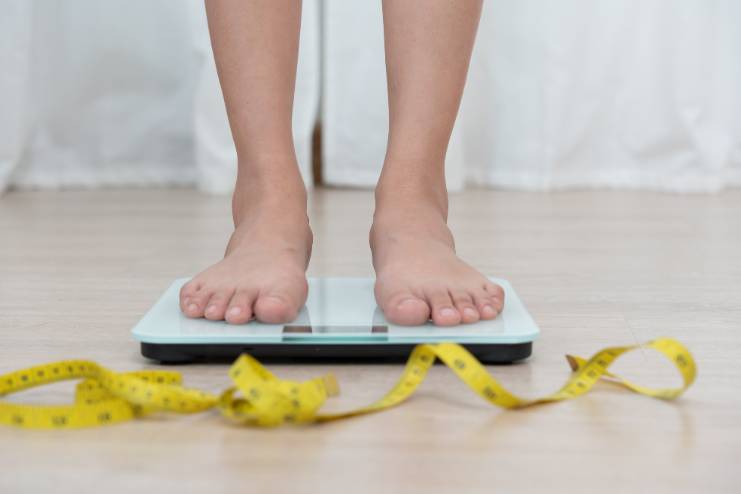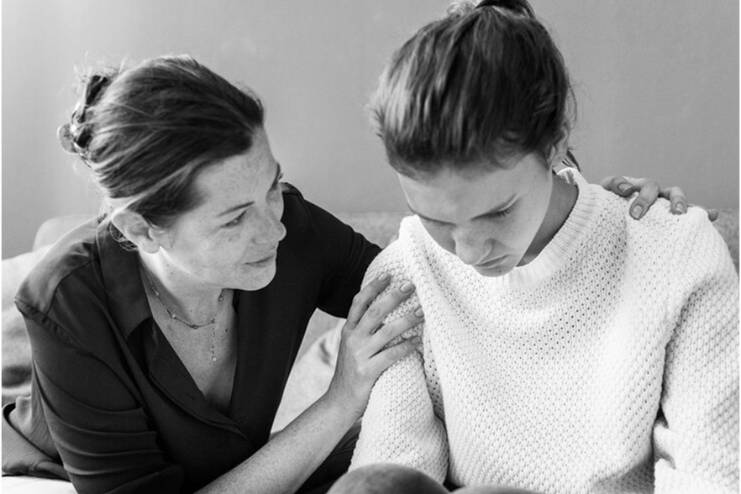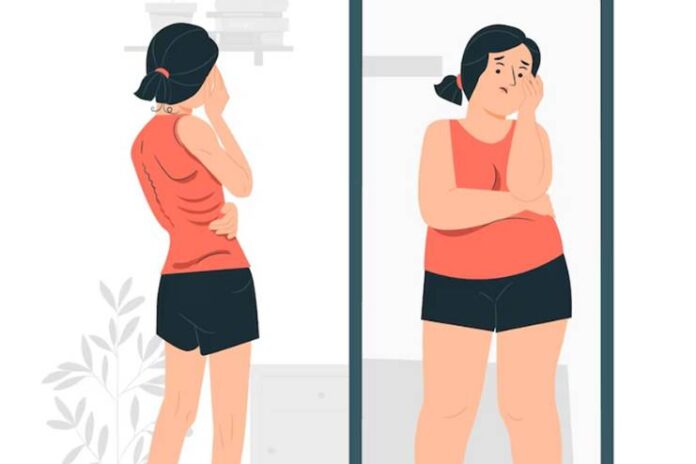Affiliate Disclaimer
Some links in this article are affiliate links. We may earn a small commission if you make a purchase through these links, at no extra cost to you. We only recommend products we find useful to our readersRecognizing early signs of anorexia is crucial for timely intervention and effective treatment. Subtle changes in behavior, attitudes towards food, and physical appearance may go unnoticed or be mistaken for normal dieting or lifestyle choices. However, being aware of the warning signs allows loved ones and caregivers to take proactive steps before the condition worsens. This article explores how to identify these early signs and discuss practical approaches to supporting those who may be developing anorexia.
What is Anorexia?

Anorexia nervosa is a serious eating disorder. It’s characterized by fear of gaining weight and a distorted perception of body image. People suffering from anorexia use self-induced starvation through excessive dieting and exercise to lose weight or prevent weight gain. This can lead to severe malnutrition and health issues such as heart problems, bone loss and organ failure.
Anorexia is not simply about food. It is a complex mental health condition that involves psychological, environmental, and genetic factors. People with anorexia may also experience co-occurring mental health disorders such as depression, anxiety, and obsessive-compulsive disorder (OCD). The onset of anorexia typically occurs during adolescence, but it can affect individuals of any age, gender, or background.
HS Recommended Article: 12 Alarming Signs That You Are Suffering From Anxiety Disorder
It is a neurobiological disorder, complex in nature, of psychological, environmental, and genetic origin. Those suffering from anorexia are also known to suffer from other comorbid mental illnesses like depression, anxiety, and OCD. Its onset is most common during adolescence, but it can affect any individual regardless of age, gender, or background.
According to the National Eating Disorders Association (NEDA), eating disorders occur in 8.6% of women and 4.07% of men in the United States at some point in their lives, while the one-year prevalence is 0.16% in women and 0.09% in men. According to ScienceDirect, it is 0.9% in women and 0.3% in men. Although the prevalence of anorexia is comparably low, it has the highest mortality rate of any psychiatric disorder.
Summary Box
- Definition: Anorexia nervosa is a severe eating disorder involving an intense fear of weight gain and a distorted body image.
- Nature: It involves extreme dieting and excessive exercise and is linked to various psychological factors.
- Prevalence: Affects approximately 1% of women and 0.3% of men in the U.S., with the highest mortality rate among psychiatric disorders.
Early Signs of Anorexia

Physical Signs:
- Sudden Weight Loss: One of the most apparent signs of anorexia is significant, unexplained weight loss.
- Fatigue: Individuals with anorexia often experience extreme tiredness and a lack of energy due to insufficient nutrient intake.
- Dizziness: Frequent dizziness or fainting spells can occur due to dehydration and low blood pressure.
- Brittle Nails and Hair Loss: Malnutrition affects the body’s ability to maintain healthy hair and nails, leading to breakage and thinning.
- Cold Intolerance: Due to a decrease in body fat and slowed metabolism, individuals with anorexia often feel cold.
HS Recommended Articles:
- How to Get Rid of Dizziness
- 15 Ways To Boost Metabolism – Science Backed Hacks
- What Fingernails Tell About Your Health? 12 Possible Facts
Behavioral Signs:
- Obsession with Calories: A preoccupation with counting calories and reading food labels is a common early sign.
- Excessive Exercise: Engaging in intense and compulsive exercise routines, often to burn calories consumed.
- Avoiding Meals: Skipping meals, making excuses for not eating, or eating very small portions.
- Social Withdrawal: Avoiding social situations, especially those involving food, can indicate an attempt to hide disordered eating habits.
- Ritualistic Eating Habits: Developing specific rituals around eating, such as cutting food into tiny pieces or eating foods in a particular order.
Psychological Signs:
- Distorted Body Image: An individual may perceive themselves as overweight despite being underweight.
- Intense Fear of Gaining Weight: A persistent and irrational fear of weight gain, even when severely underweight.
- Extreme Mood Swings: Mood instability, including irritability, anxiety, and depression, often accompanies anorexia.
- Perfectionism: A relentless pursuit of perfection and high achievement in various areas, including body weight and appearance.
Summary Box
- Physical Signs: Sudden weight loss, fatigue, dizziness, brittle nails, hair loss, cold intolerance.
- Behavioral Signs: Obsession with calories, excessive exercise, avoiding meals, social withdrawal, ritualistic eating habits.
- Psychological Signs: Distorted body image, intense fear of gaining weight, extreme mood swings, perfectionism.
Risk Factors for Anorexia

Knowing the anorexia risk factors is highly critical to determining who is more susceptible to developing the disorder. These factors range from genetic and psychological to environmental.
Genetic Factors:
- Family History of Eating Disorders: Individuals with a family history of anorexia or other eating disorders are more predisposed to anorexia. Genetic factors are, therefore, highly involved in the formation of the disorder.
Psychological Factors:
- Perfectionism: This tendency towards perfection and high need to control acts as a stimulus for anorexia. Typically, such people have unrealistically high expectations of themselves, mainly with respect to body image and weight.
- Low Self-Esteem: Using restrictive eating to cope or gain a sense of control is common among those who feel inadequacy or low self-worth.
Environmental Factors:
- Cultural Pressures: Societal and cultural pressures to be thin and maintain a certain body image can significantly impact the development of anorexia. Media portrayals of idealized body types can exacerbate body dissatisfaction.
- Cultural Pressures: Societal and cultural pressures to be thin and have a specific body image are major factors causing anorexia. Body dissatisfaction is primarily due to media portrayals of idealized body types.
- Stress: High levels of stress from academic, professional, or even personal sources can trigger the onset of disordered eating habits.
- Trauma: Trauma, whether physical or emotional, in the form of abuse, can be a contributing source to anorexia. The disorder may serve as a way to regain control or distract from painful emotions.
Summary Box
- Genetic Factors: Family history of eating disorders.
- Psychological Factors: Perfectionism, low self-esteem.
- Environmental Factors: Cultural pressures, stress, trauma.
Strategies for Early Intervention

Early intervention in anorexia is the key to successful treatment and recovery.
Recognize the Signs
- Monitoring Symptoms: Differentiate between physical, behavioral, and psychological symptoms.
- Consistent Observation: Observe the food intake of the person, his mood, and his physical health, and pay attention to drastic changes in his behavior or appearance that may mark the onset of anorexia.
Approach the Individual
- Supportive Conversation: Use the early warning signs as a means of approaching the individual with compassion and concern. State what you have observed and how you are feeling with “I” statements, such as “I’ve been noticing you seem really stressed about food lately, and I am concerned about you.”
- Avoiding Blame: Ensure that the conversation is free of argument and judgment. Don’t blame or make them feel guilty about their behaviors.
- Encouraging Openness: Encourage the individual to share their feelings and problems, be an active listener and reassure that you are always available for the person.
Seek Professional Help
- Healthcare Providers: Assist and encourage the individual to seek the help of health care providers, who can help in evaluating, diagnosing, and outlining a comprehensive plan. Medical help should be sought early so that health-related problems of an immediate nature can be addressed.
- Therapists: The patient should be referred to a therapist who has experience in treating eating disorders for proper therapy. Therapists can provide cognitive-behavioral therapy (CBT), family-based therapy (FBT), or other therapies the patient may need.
- Nutritionists: The patient should be referred to a nutritionist who has dealt with eating disorders. This nutritionist will help in designing a balanced meal plan and teach healthy eating skills.
Summary Box
- Recognizing the Signs: Monitor physical, behavioral, and psychological symptoms.
- Approaching the Individual: Use supportive and non-judgmental communication.
- Seeking Professional Help: Consult healthcare providers, therapists, and nutritionists.
Treatment Options

Anorexia treatment considers medical, nutritional, and psychological perspectives.
Medical Treatment
- Medical Monitoring: This includes close monitoring of vitals, electrolytes, and general physical health. This may include frequent visits to a primary care physician or specialist.
- Medications: Although there are no medications specifically made to treat anorexia, there are some that can help alleviate associated disorders, such as anxiety, depression, or obsessive-compulsive disorder. Some antidepressants and anti-anxiety drugs could be prescribed.
Nutritional Treatment
- Nutritional Counseling: A registered dietitian with expertise in eating disorders can provide individualized meal plans to restore healthy eating habits and ensure balanced nutrition.
- Nutritional Counseling: A registered dietitian will devise a meal plan to aid in restoring healthy eating patterns and balanced nutrition.
- Meal Support: This includes structured meal support and meal planning. It may consist of monitored meals and snack planning to help restart normal eating.
- Nutritional Education: Educating on balanced eating, listening to body needs, and the value of a well-balanced diet is very important for complete recovery.
Psychological Treatment
- Cognitive-Behavioral Therapy (CBT): CBT helps individuals to challenge and change distorted thoughts and feelings related to food, body image, and weight.
- Family-Based Therapy (FBT): FBT, particularly effective for adolescents, involves the family in the treatment process to support the individual’s recovery.
- Individual Therapy: These sessions can resolve emotional issues by boosting self-esteem and developing healthier ways of coping in one-to-one therapy sessions with mental health experts.
- Group Therapy: Either support therapy groups or group psycho-educative sessions give a sense of community and shared experiences, which can be comforting and empowering during recovery.
Summary Box
- Medical Treatment: Includes medical monitoring and medications for co-occurring conditions.
- Nutritional Treatment: Involves nutritional counseling, meal support, and education.
- Psychological Treatment: Encompasses CBT, FBT, individual therapy, and group therapy.
Support Systems

One of the most crucial methods of recovery from anorexia is to build a great support system.
Family and Friends
- Emotional Support: Families and friends are most important in the process of recovery. They are able to offer much-needed encouragement, understanding, and a sympathetic ear to the one suffering from anorexia.
- Educate Themselves: Family and friends should educate themselves about anorexia to understand the thought process that the individual might be experiencing. This can help them support the individual better.
- Encourage Professional Help: Family and friends should encourage the patient to seek professional help. It’s important for the patient to participate in therapy sessions and regularly visit for medical check-ups.
Support Groups
- Group Therapy: Joining a support group, either in-person or online, can provide a sense of community and shared experience. Group therapy offers a space to share struggles and successes with others who understand the journey of recovery.
- Group Therapy: A support group, either in-person or online, can help in creating a sense of belonging and sharing of experiences. Group therapy will let you share your challenges and success stories where the members understand your journey to recovery.
- Online Communities: Forums and social media groups on eating disorder recovery are very effective in providing constant support and connection, mainly to people who lack local resources.
Resources
- Books: There are many books available that offer insights into anorexia recovery. Titles such as “Life Without Ed” by Jenni Schaefer and “Brave Girl Eating” by Harriet Brown can be very helpful.
- Websites: Reputable websites like the National Eating Disorders Association (NEDA) provide extensive resources, including educational materials, recovery tools, and forums.
- Hotlines: Crisis hotlines, such as the NEDA Helpline, offer immediate support and can connect individuals with local resources and treatment options.
Summary Box
- Family and Friends: Offer emotional support, educate themselves about anorexia, and encourage professional help.
- Support Groups: Provide a sense of community and shared experiences through group therapy and online communities.
- Resources: Include helpful books, reputable websites, and crisis hotlines for additional support.
Conclusion
Recognizing early signs of anorexia is crucial to ensure timely interventions. Early detection will keep the disorders from escalating, and the possibility of recovery can be enhanced to a great extent. If one is aware of the physical, behavioral, and psychological signs and risk factors, a person and his or her near and dear ones can take proactive measures to address the problem.
Seek professional help immediately If you observe signs of anorexia in yourself or someone you love. Healthcare providers, therapists, and nutritionists can formulate a comprehensive treatment plan. Remember that the family and friends of the patient, as well as support groups and informational websites, can offer support.
References
- https://www.nationaleatingdisorders.org/anorexia-nervosa/
- https://www.nationaleatingdisorders.org/statistics/
- https://www.sciencedirect.com/topics/nursing-and-health-professions/anorexia-nervosa
- https://www.webmd.com/mental-health/eating-disorders/anorexia-nervosa/mental-health-anorexia-nervosa
- https://medlineplus.gov/ency/article/000362.htm
- https://www.mayoclinic.org/diseases-conditions/anorexia-nervosa/symptoms-causes/syc-20353591
In this Article




















